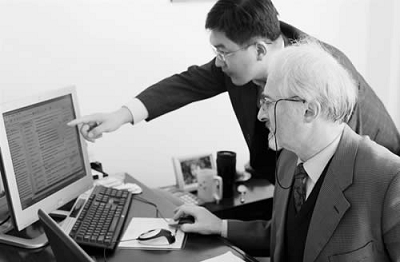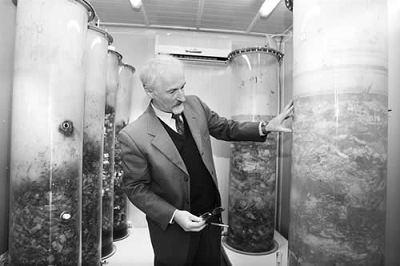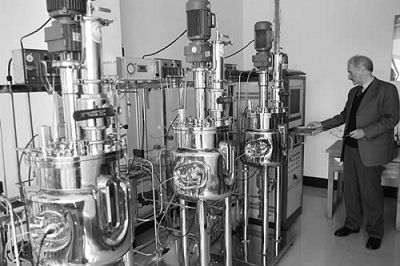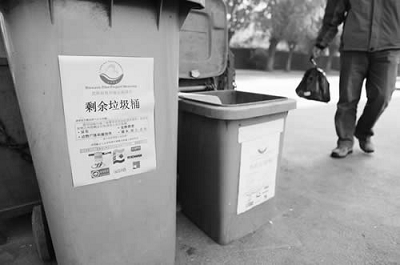Exclusive Interview with 2007 National Friendship Winner
Prof. PhD. habil. Bernhard Raninger
By Xinhua News Agent
Why do I collect waste in China?

BEIJING, Sep. 29 (Xinhua News Agency): The Austrian environmental expert Bernhard Raninger was over handed the National Friendship Award by the Vice Premier of the State Council Zeng Peiyan on September 29th. The China National Friendship Award is the highest award by the Chinese government to foreign experts for their contribution to China's modernization construction.
Invited by Tianjin Design Research Institute, Mr. Raninger came to China in 1989 for the first time to work on environmental engineering such as solid waste management. He came to Liaoning in 1999 as the EU Co-director in the large EU-China cooperation project --Liaoning Integrated Environmental Programme (LIEP). "Shenyang was one of the most polluted cities in the world when I first came" said Mr. Raninger.

Chinese waste production (now) is about 320 million tons annually and only 30% are treated, mainly by landfilling. The RRU-BMW project was implemented in 2004 in Shenyang. The RRU-BMW is the first project to tackle bioorganic waste management in a Chinese metropolitan area and to utilize biowastes as material and energy sources in China. As the German expert (working for the German CIM/GTZ technical cooperation), Mr. Raninger initiated the "source separation" environmental protection idea in Shenyang, based on the fact of increasing waste production and improper waste treatment.
"We selected 240 households from 4 pilot communities, to do the source separation collection. During a period of about three years, it was demonstrated that 'clean' bioorganic waste can be collected in Chinese households" said Mr. Raninger. He supports his view by a set of data: about 80 kg biowaste per person could be collected annually, the average participation rate in the pilot areas is about 70 % and the bioorganic recovery rate is 69 %, which is even better than the results from similar projects in Germany about ten years ago.

"Energy from biowaste of one household per week can keep them driving a car for about 20 kilometers" said Mr. Raninger "of course, this is not enough, as China is facing the problem of energy shortage, which requires us to develop renewable energy such as solar-, wind energy and so on. Biomass energy can also be (part of) the solution."
Living in China for about 10 years, Mr.Raninger is very aware of the Chinese living habits, which helps his research work a lot.
"China has a good waste recycling practice. You give the mineral water bottles, old newspapers and cans to the recyclers and they will give you some money, which encourages the residents to keep on waste separation. However, in Germany people have to pay to get the waste recycled. This Chinese approach enjoys wide popularization" said Mr. Raninger.
Mr. Raninger candidly said that the most difficulty thing now is not biowaste treatment technology, but how to widespread the idea of biowaste separation in Chinese cities.

"Even the 'best project' needs approval and acceptance (from the public) at the beginning; this was the situation in Austria a decade ago and China now also needs this "process" said he. In the coming two years, Mr. Raninger will further implement the waste separation project. As a scientist who has devoted a whole life on waste treatment, Mr.Raninger regards China of special significance to him, because China is also the hometown of his wife.
"With the acceleration of China's urbanization, there will be more and more biowaste. I would like to bring my European waste management experience to China, adapt the experience to the local conditions and apply it to Chinese waste management practice. I hope this will help to reduce Greenhouse gas emission in China and alleviate the energy crisis"said Mr. Raninger.
(Translation by Li Kuiling, ICEEE)


